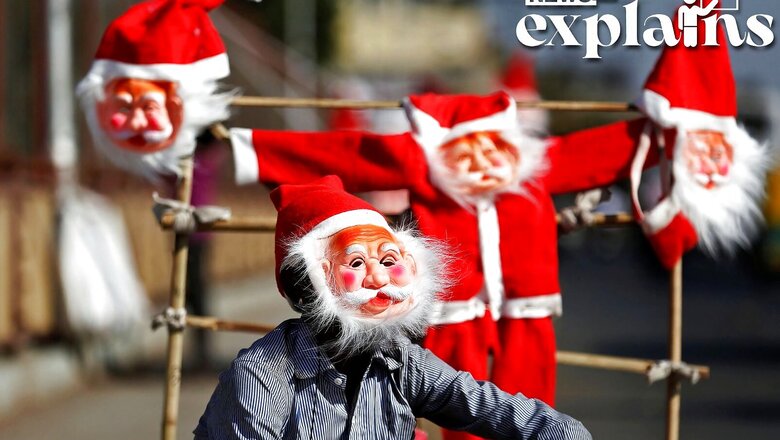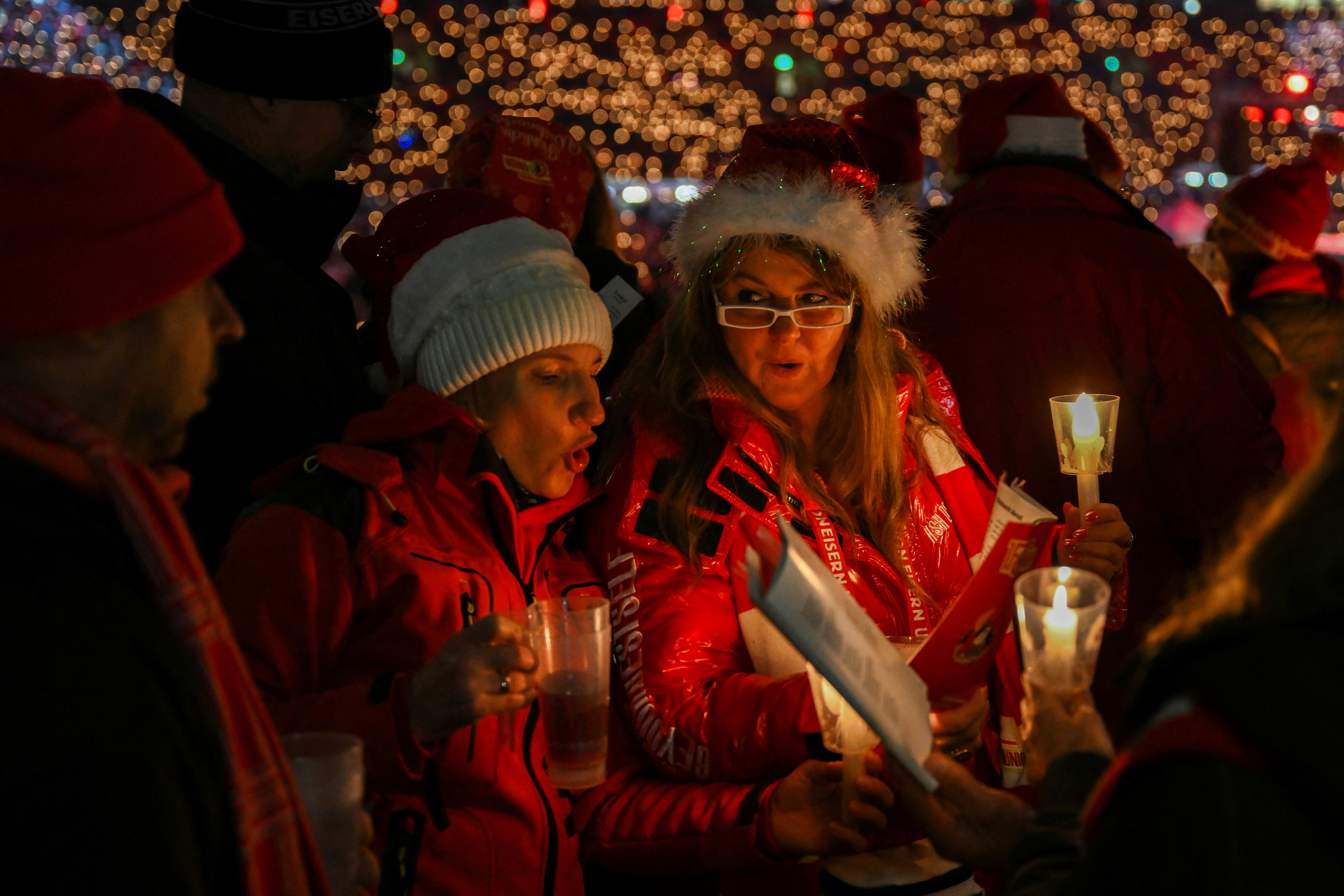
views
It’s finally Christmas, but as always, a ‘Merry’ and not ‘Happy’ one. But why the distinction when we usually affix a ‘happy’ against most of our festival greetings?
If you google the meanings of both words, they essentially mean the same thing.
“Cheerful and lively,” says the Oxford dictionary for merry’s meaning. And we all know what happy means.
So, why merry?
Well, no one exactly knows the true origination of the phrase, but there are some theories:
Is it Wrong to Say Happy?
Before we tell you why the phrase may have come about, it’s important to clarify that saying Happy is not wrong.
“Happy Christmas” has not completely faded—it is still widely used in England, a report by Countryliving states.
This is thought to be because “happy” became associated with a higher social class than “merry,” which was associated with the rowdiness of the lower classes.
Others took notice when the royal family made “Happy Christmas” their preferred greeting, the report explains, adding that Queen Elizabeth used to wish her subjects a “Happy Christmas” rather than a “Merry Christmas” each year.
A Carol-ic Change
The phrase “Merry Christmas” has been in use since at least 1534. A letter from bishop John Fisher to Henry VIII’s chief minister, Thomas Cromwell, confirms this, the report says.
The popular phrase is also used in the English carol “We Wish You a Merry Christmas,” which was introduced in the 1500s.
With the publication of Charles Dickens’ A Christmas Carol in 1843, the phrase “Merry Christmas” gained traction. The phrase was also printed on the first commercially available Christmas card that year.
Historians believe it could be as simple as a grammatical lesson.

“Happy” describes an inner emotional state, whereas “merry” describes a behavior—something active and possibly even raucous. Consider the free-spirited act of “making merry” versus the state of simply “being happy.”
People gradually stopped using “merry” as a separate word during the 18th and 19th centuries as both words evolved and changed meanings. It survived in common phrases like “the more the merrier,” as well as in things like Christmas songs and stories, thanks to Charles Dickens’ influence. Many of today’s Christmas traditions are based on the Victorian Christmas.
A War on Christmas?
‘Merry Christmas’ has recently also been a part of cultural debates in the United States.
There have been claims that progressive groups were pushing a more neutral and secular greeting of “Happy Holidays” as part of a larger conspiracy to devalue Christmas.
One of the key elements of former US president Donald Trump’s ‘Christmas war’ was the alleged unwillingness to say “Merry Christmas,” as the phrase (according to him) has been replaced by more inclusive but less explicitly Christian phrases.
“If I become President, we will say ‘Merry Christmas’ in every shop,” he promised in 2015. And, following Trump’s election victory in 2016, his former campaign manager Corey Lewandowski declared, “You can say ‘Merry Christmas’ again, because Donald Trump is now the president.”
But is the Allegation True?
According to a report by the Atlantic, in 2005, roughly equal shares of Americans told Pew Research that they wanted stores to say “Merry Christmas” and that they didn’t care what stores said (with another 12% preferring “Happy holidays” or “Season’s greetings”).
Those figures began to diverge over the next decade. By 2017, less than a third (32%) preferred “Merry Christmas,” and more than half (52%) said it didn’t matter which greeting stores used.
In a 2016 analysis, FiveThirtyEight, using data from the Public Religion Research Institute, found significant regional differences in US.
The West and Northeast, which are generally more liberal, prefer “Happy Holidays” to “Merry Christmas.” The Midwest, not the conservative South, leads the way for “Merry Christmas” (the region is roughly evenly split).
Read all the Latest Explainers here




















Comments
0 comment